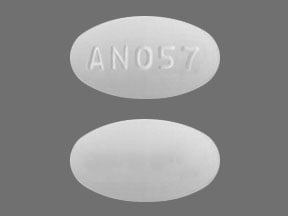
Evista Coupons & Savings Card – Discount Prices from $34.32
Brand for: Raloxifene
My prescription
Edit
60MG, Raloxifene (90 Tablets)
Select pharmacy

CVS
$36.00
COUPON PRICE
Walmart
$34.32
COUPON PRICE
Albertsons
$38.15
COUPON PRICE
Walgreens
$39.42
COUPON PRICEEvista savings card
Show this card to your pharmacist
Walmart
$34.32
BIN
ID
PCN
GRP
019876
LHC252F806
CHIPPO
LHX
Powered by
Related estrogen agonist/antagonists prescriptions
More prescriptions for osteoporosis
Related estrogen agonist/antagonists prescriptions
More prescriptions for osteoporosis
Evista (Raloxifene) dosage forms
Dosage Quantity Price from Per unit 60MG 90 Tablets $34.32 $0.38 60MG 1 Tablet $2.78 $2.78 60MG 30 Tablets $10.94 $0.36 60MG 50 Tablets $16.57 $0.33 60MG 60 Tablets $19.38 $0.32 60MG 100 Tablets $37.08 $0.37 60MG 300 Tablets $58.64 $0.20 60MG 500 Tablets $80.20 $0.16 60MG 1000 Tablets $134.10 $0.13 60MG 2000 Tablets $241.90 $0.12
| Dosage | Quantity | Price from | Per unit |
|---|---|---|---|
| 60MG | 90 Tablets | $34.32 | $0.38 |
| 60MG | 1 Tablet | $2.78 | $2.78 |
| 60MG | 30 Tablets | $10.94 | $0.36 |
| 60MG | 50 Tablets | $16.57 | $0.33 |
| 60MG | 60 Tablets | $19.38 | $0.32 |
| 60MG | 100 Tablets | $37.08 | $0.37 |
| 60MG | 300 Tablets | $58.64 | $0.20 |
| 60MG | 500 Tablets | $80.20 | $0.16 |
| 60MG | 1000 Tablets | $134.10 | $0.13 |
| 60MG | 2000 Tablets | $241.90 | $0.12 |
Who should not take Evista?
Evista (raloxifene) should not be taken by individuals who are pregnant or may become pregnant, as it can harm the fetus. It is also contraindicated in individuals with a history of blood clots, such as deep vein thrombosis, pulmonary embolism, or retinal vein thrombosis. Additionally, those with a known allergy to raloxifene or any of its components should avoid taking Evista. It is important for individuals to consult with their healthcare provider to determine if Evista is appropriate for their specific medical condition.
Which is better, Evista or Fosamax?
The choice between Evista (raloxifene) and Fosamax (alendronate) depends on the specific medical condition being treated and the individual patient's health profile. Evista is typically used for the prevention and treatment of osteoporosis in postmenopausal women and also reduces the risk of invasive breast cancer. Fosamax is used to treat and prevent osteoporosis in postmenopausal women and men, and it can also treat osteoporosis caused by glucocorticoid use and Paget's disease of bone.The decision on which medication is better should be made by a healthcare provider, considering factors such as the patient's medical history, risk factors, potential side effects, and specific health needs. It is important for patients to discuss their options with their healthcare provider to determine the most appropriate treatment for their situation.
Does Evista improve bone density?
Yes, Evista (raloxifene) is known to improve bone density. It is commonly used to treat and prevent osteoporosis in postmenopausal women by mimicking the effects of estrogen on bone tissue, which helps to maintain or increase bone density.
Is Evista the same as Prolia?
Evista and Prolia are not the same. Evista (raloxifene) is a selective estrogen receptor modulator (SERM) used primarily to treat and prevent osteoporosis in postmenopausal women and to reduce the risk of invasive breast cancer. Prolia (denosumab) is a monoclonal antibody used to treat osteoporosis in postmenopausal women at high risk for fracture and to increase bone mass in men with osteoporosis. They work through different mechanisms and are used for similar but distinct purposes.
What medical conditions should not take raloxifene?
Raloxifene should generally be avoided in individuals with a history of venous thromboembolism, including deep vein thrombosis and pulmonary embolism, as it may increase the risk of these conditions. It is also contraindicated in those with active or past history of blood clots. Additionally, raloxifene is not recommended for use in premenopausal women, during pregnancy, or in individuals with severe liver impairment. It is important for patients to consult with their healthcare provider to determine if raloxifene is appropriate for their specific medical condition.
